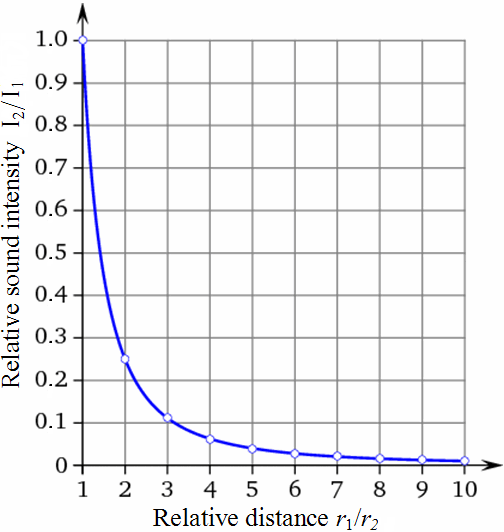BOTR,
I find math fascinating though i only have an understanding of the basic fundamentals. One simple math concept that is inherent in nature and thus physics is the inverse square law which as applied to variables such as distance and intensity is true of many forces and/or effects in the universe. Sound, light, gravity, magnetism, etc all follow this simple rule, which states that as you increase the distance from a source, the intensity or force in question decreases by the inverse square of the distance.
y=1/x 2
If you stand twice as far away from speaker, it will appear 1/4 as loud. If you quad the distance, it is 1/16th as loud. (Note here that we don't hear sound levels in a linear fashion; it's logarithmic but that's another story) Same rule goes for light and brightness, gravity and attraction, etc. A very simple equation that is inherent in much of physics, though much other stuff can be built around it, essentially.
Were you to graph only the positive real numbers;

Ok, pretty but this is the basics of analytic geometry. Nothing much funky about the function but the idea of the cartesian coordinate system is fundamental to many types of math. It has roots in the early Greek geometers and the ideas of Euclid and his planes. But in itself, it's a little tough to make the connection to the concept it describes. Sure one might see that the function doesn't quite cross either axis and deduce that for any real number x, y will never be 0 or infinity. So, it has limits but that is another story. Still not seeing it.
It didn't really click with me until I saw this

Now that's a lot easier to understand and is worth a thousand words IMO. Of course, the effect that's being described is easily seen here though it's still a cartesian system, just with a third axis, z.
If I'm not mistaken, an equation is "derived" from the basic function in the xy coordinate system to this xyz one using calculus and differentiation. It works the other way as well using integration. I stand to be corrected by the professionals here on this though.
So maybe this is kinda something like what you're looking for. Maybe you know it already. But it was fun to try and explain. Kinda weird, eh? ;)


